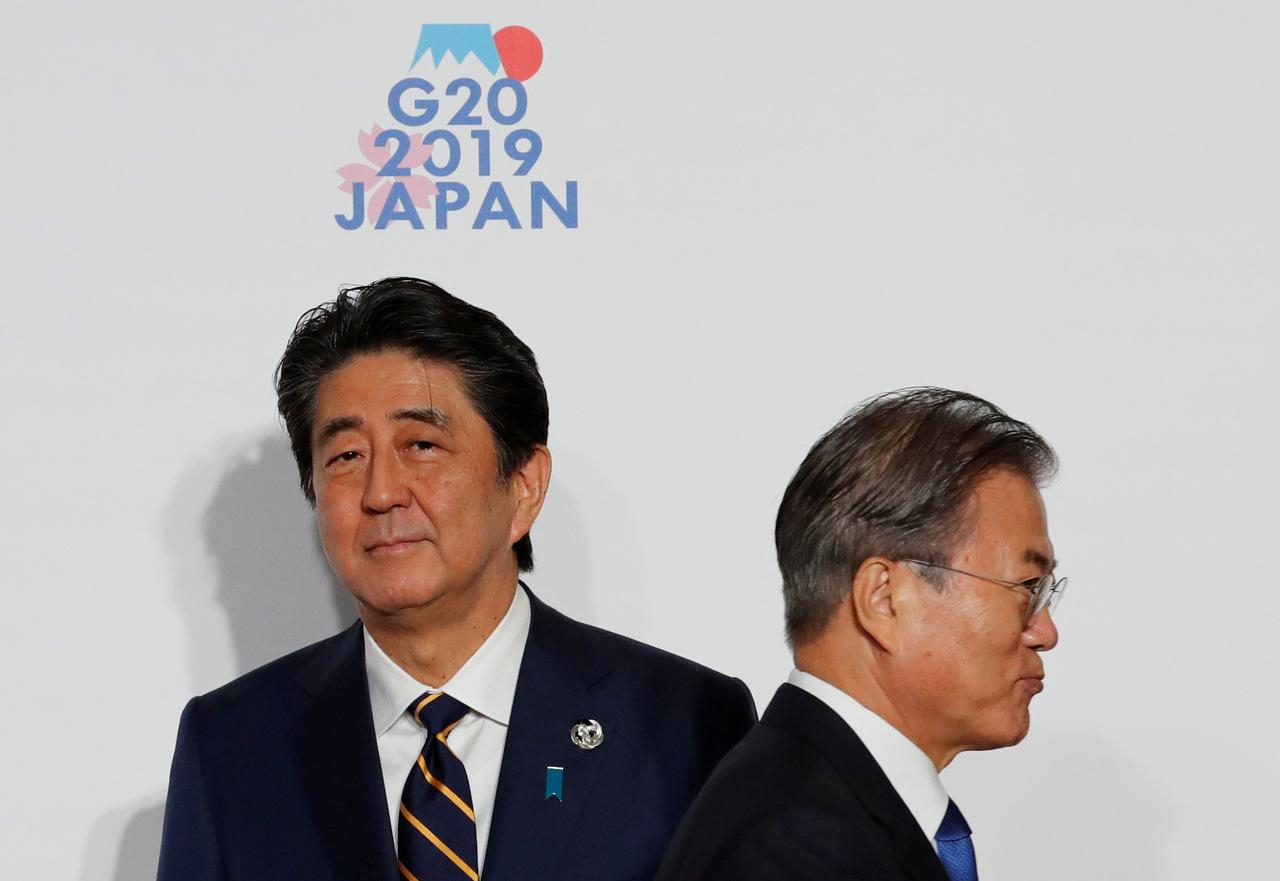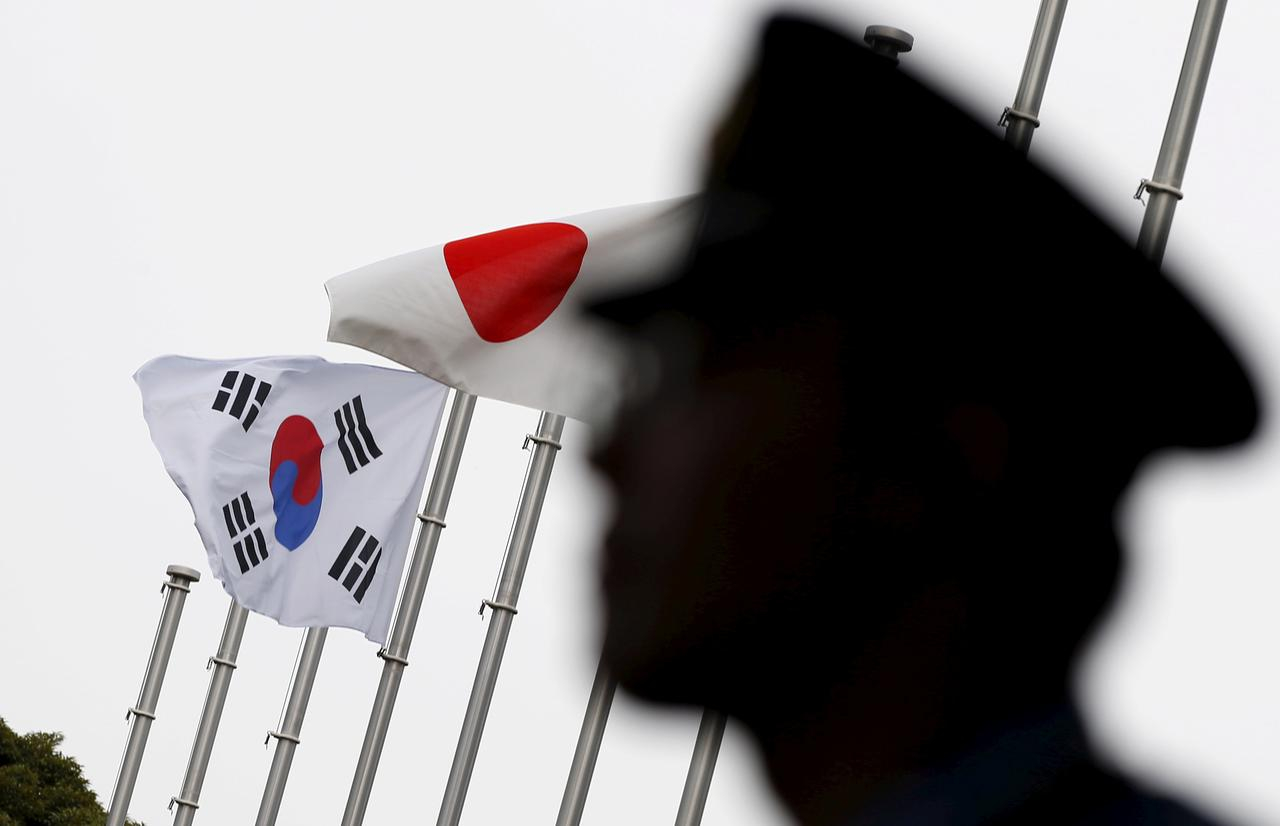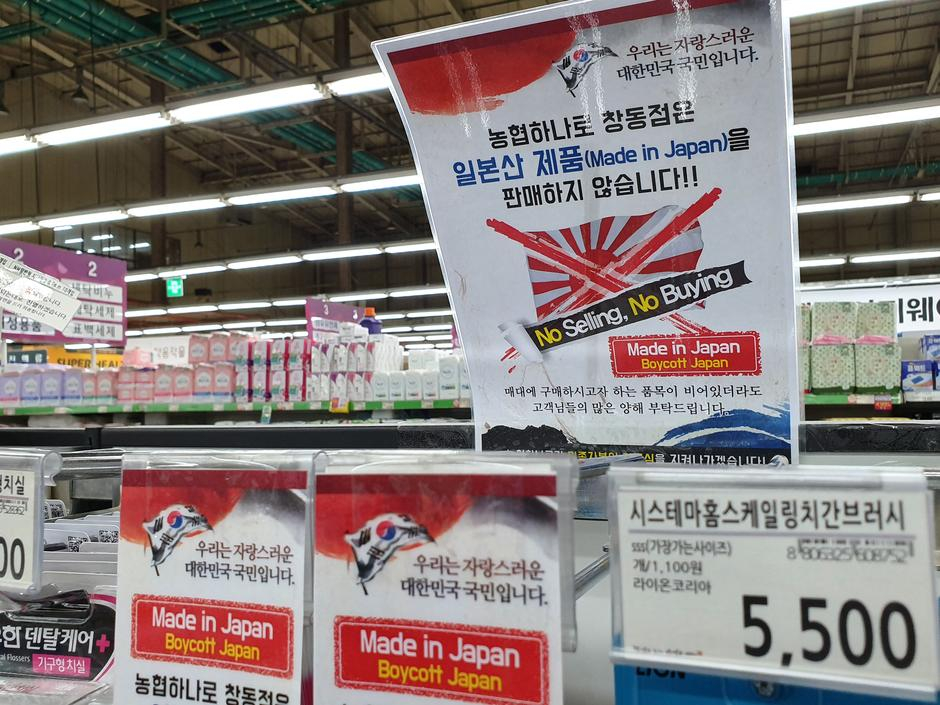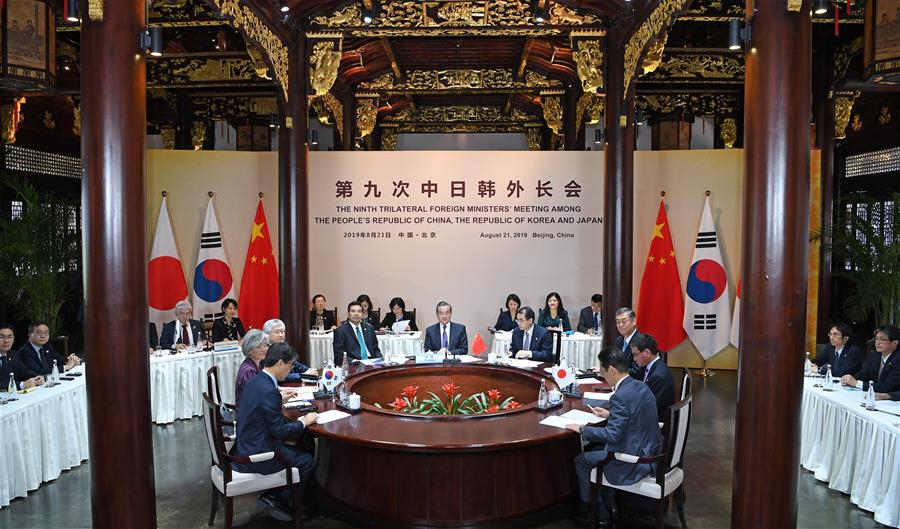Leaders from China, South Korea and Japan are to attend a planned trilateral meeting in Chengdu, capital of southwestern China's Sichuan Province, on Tuesday. The meeting between Japanese Prime Minister Shinzo Abe and South Korean President Moon Jae-in is especially drawing attention.
The one-on-one meeting will mark the first such talks in more than a year between the two leaders amid tit-for-tat escalations of trade and historical disputes. They only briefly talked for 11 minutes in Bangkok during the ASEAN Summit in November, and only shook hands during G20 Osaka summit in June.

South Korean President Moon Jae-in (R) is welcomed by Japanese Prime Minister Shinzo Abe upon his arrival for a photo session at G20 Leaders Summit in Osaka, Japan, June 28, 2019. /Reuters Photo
South Korean President Moon Jae-in (R) is welcomed by Japanese Prime Minister Shinzo Abe upon his arrival for a photo session at G20 Leaders Summit in Osaka, Japan, June 28, 2019. /Reuters Photo
Ties between Japan and South Korea have plunged to their lowest point in decades since South Korea's courts last year ordered Japanese firms to pay compensation for forced labor during Japan's colonial rule of the Korean Peninsula between 1910 and 1945.
Tokyo says the issue was settled by a 1965 treaty, which saw Tokyo pay Seoul some 500 million U.S. dollars under the banner of "economic cooperation."
The feud however, continued to spill over into trade and security issues. Both sides tightened export restrictions and removed each other from their preferential lists of trade partners.
The spat also spread to security areas, with Seoul cancelling the General Security of Military Information Agreement (GSOMIA), before deciding to extend the pact with Japan just hours before the deal was due to expire.
The recent high-level exchanges between the two countries also failed to make substantial progress on easing bilateral tensions.

A police officer stands guard near Japanese and South Korean national flags at a hotel in Tokyo, Japan, June 22, 2015. /Reuters Photo
A police officer stands guard near Japanese and South Korean national flags at a hotel in Tokyo, Japan, June 22, 2015. /Reuters Photo
The trade dispute between South Korea and Japan is feared to damage both economies as the two countries are intertwined in the global chain of supply and demand.
As Japan's third-largest exporting country and the fifth-largest importing nation, South Korea's exports to Japan tumbled 13.8 percent in October from a year earlier, while South Korea's imports from Japan dropped 23.4 percent.
In some sectors, the bilateral interdependence was deeper. Take the semiconductor sector as an example, as of 2017, Japan exported 10.4 billion U.S. dollars of chip-related products to South Korea, accounting nearly one fifth of Japan's total export to South Korea.

A banner campaigning for boycott of Japanese products is seen at a market in Seoul, South Korea, July 12, 2019. /Reuters Photo
A banner campaigning for boycott of Japanese products is seen at a market in Seoul, South Korea, July 12, 2019. /Reuters Photo
The number of South Korean visitors to Japan also plunged 65.1 percent to 205,000 in November, following a 65.5 percent decline in October and a 58.1 percent drop in September.
The trade dispute has raised fears about security cooperation.
The long-time relationship between U.S., Japan and South Korea has already been hit as U.S. President Donald Trump wants the countries to pay more for U.S. troops stationed there.
Although South Korea last month decided to retain an intelligence-sharing pact with Japan, after threatening to end it, the tensions between Tokyo and Seoul further lead them to be at odds.
During August's Trilateral Foreign Ministers' Meeting among China, Japan and South Korea, Chinese Foreign Minister Wang Yi promised to expedite trilateral free-trade negotiations and urged Tokyo and Seoul to resolve their differences through dialogue.
"The Japanese and South Korean friends should follow the concept of understanding each other heart to heart. We, the Chinese people, treat others the same way as we expect to be treated," Wang said.
"We hoped two sides can seriously accommodate each other's concerns, handle differences in a constructive manner, and find proper solutions to problems."

Chinese State Councilor and Foreign Minister Wang Yi is in a meeting with South Korean Foreign Minister Kang Kyung-wha and Japanese Foreign Minister Taro Kono in Beijing, China, August 21, 2019. /Xinhua Photo
Chinese State Councilor and Foreign Minister Wang Yi is in a meeting with South Korean Foreign Minister Kang Kyung-wha and Japanese Foreign Minister Taro Kono in Beijing, China, August 21, 2019. /Xinhua Photo
The forthcoming trilateral leaders' summit shows that Japan and South Korea accepted China's mediation offer. Meanwhile, it also shows that China always upholds multilateralism.
This year marks the 20th anniversary of China-Japan-South Korea cooperation. Despite hiccups, cooperation among the three countries has reaped tangible results.
China, Japan and South Korea account for 24 percent of the world economy. Trilateral trade exceeded 720 billion U.S. dollars last year, and over 31 million visits were recorded.
According to a Chinese saying, "Neighbors wish each other well, just as family members do." Similarly, China wishes to see stable Japan-South Korea ties because the three neighbors are important countries in the region, and stable trilateral ties can bring peace and stability to the region and the world at large.
(With input from agencies)